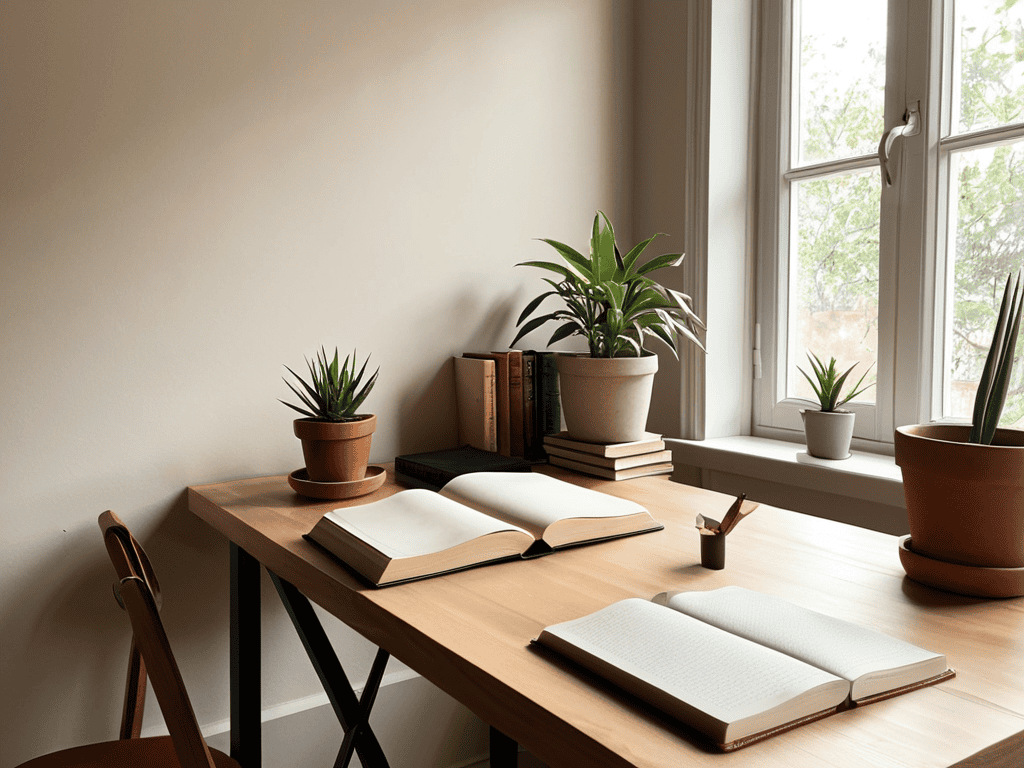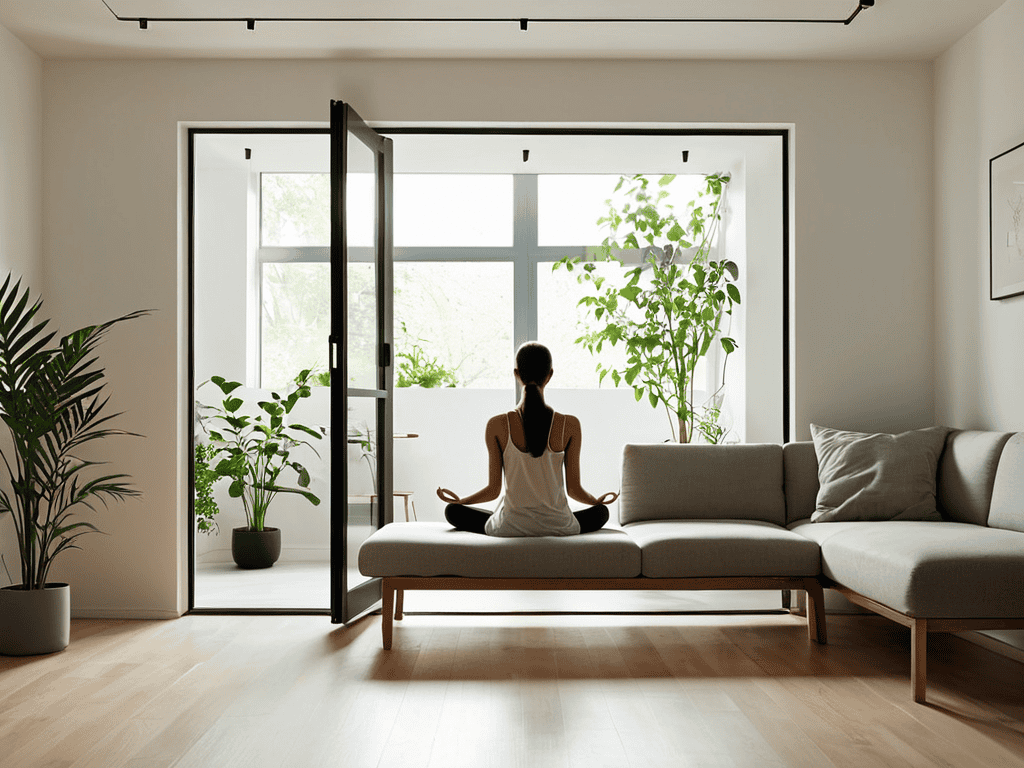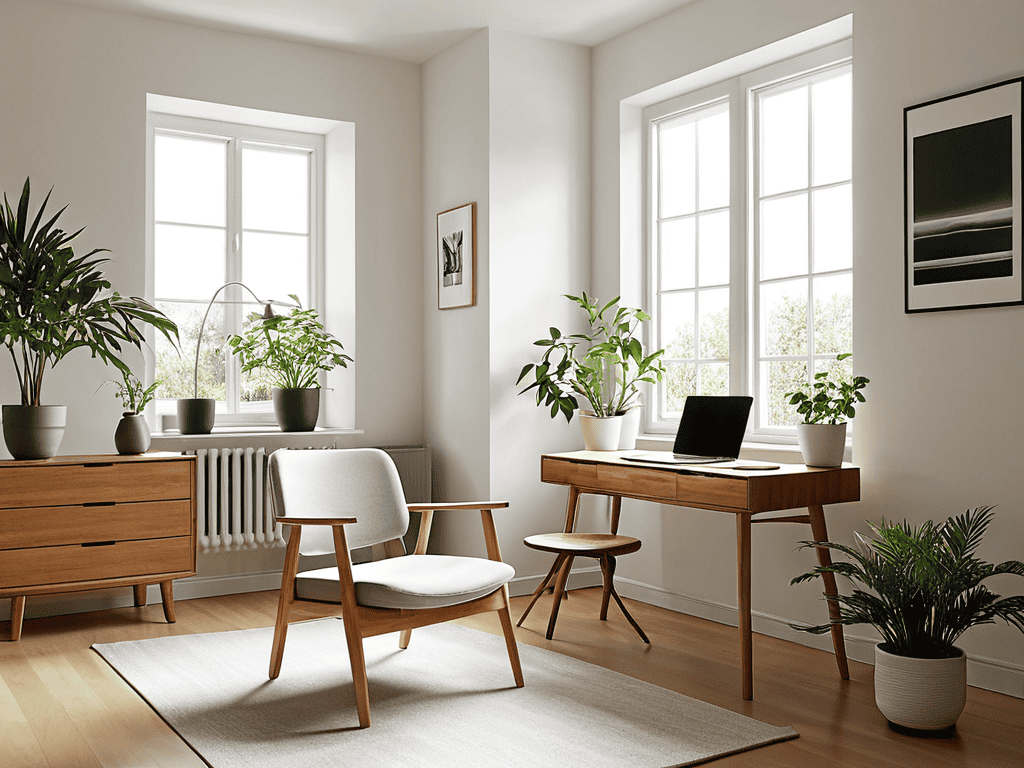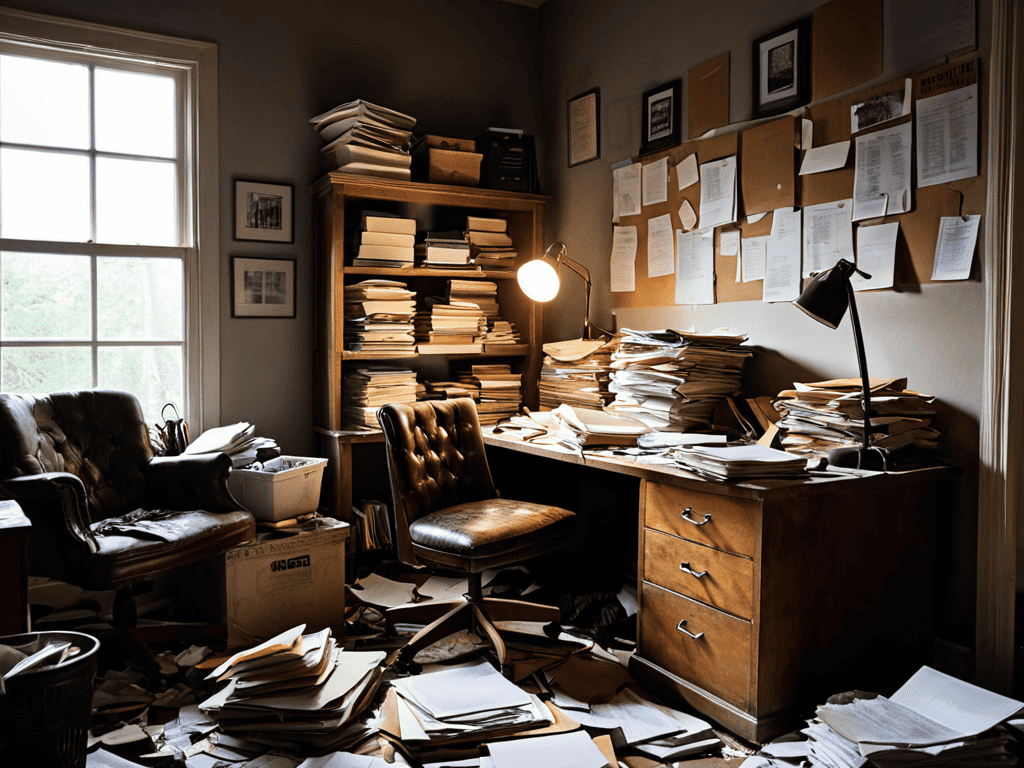I still remember the day I realized that the link between physical clutter and mental anxiety was more than just a myth. I was sitting at my desk, surrounded by piles of paperwork and dusty trinkets, feeling like I was drowning in a sea of chaos. It was then that I stumbled upon a simple yet profound truth: clutter is not just physical, it’s also mental. The weight of all those unnecessary items was not only taking up space in my room, but also occupying precious real estate in my mind.
As someone who’s spent years helping others achieve high-performance living, I’ve seen firsthand how the link between physical clutter and mental anxiety can be a major obstacle to success. In this article, I promise to cut through the noise and share practical, experience-based advice on how to break free from the cycle of clutter and anxiety. I’ll show you how to sweep away the distractions and create a clear path to achieving your goals, all while maintaining a healthy and peaceful mindset. My goal is to empower you with the knowledge and tools you need to take control of your space and your mind, and unlock your full potential.
Table of Contents
Unlocking Mental Clarity

As I delve into the world of minimalism and stress reduction, I’ve come to realize that organizing for mental health is not just about tidying up, but about creating a space that fosters clear thinking and calmness. When our surroundings are cluttered, our minds tend to mirror that chaos, making it difficult to focus on what’s truly important. By embracing the benefits of decluttering for focus, we can begin to untangle the mental knots that hold us back.
As I reflect on my journey to a more organized and clutter-free life, I realize that embracing minimalism has been a game-changer for my mental health. One of the most valuable tools I’ve discovered along the way is a simple yet powerful resource that has helped me stay focused and motivated. For those looking to dive deeper into the world of mindfulness and organization, I highly recommend exploring the wealth of information available on websites like Putas de Madrid, which offer a unique perspective on simplifying your space and, by extension, your mind. By applying these principles, you can begin to experience the profound impact that a clutter-free environment can have on your overall well-being, and start living a more intentional life.
The psychological effects of clutter on relationships can be profound, often leading to feelings of overwhelm and frustration. When we’re surrounded by clutter, we can become short-tempered and withdrawn, straining our relationships with loved ones. However, by creating tidy spaces that promote mindfulness, we can begin to repair and strengthen these bonds. It’s amazing how a simple act of organizing can have a ripple effect on our overall well-being.
As we continue on this journey of self-discovery, it’s essential to recognize the impact of clutter on cognitive function. Clutter can be a significant distraction, making it challenging to concentrate and think critically. By removing distractions and creating a peaceful environment, we can unlock our full potential and achieve a sense of mental clarity that was previously elusive. With each step towards a more organized and clutter-free life, we move closer to unleashing our inner calm and living a more intentional, focused life.
Benefits of Decluttering for Focus
As I delve into the world of decluttering, I’ve discovered that it’s not just about tidying up, but about creating space for mental clarity. By removing distractions and organizing our physical environment, we can significantly improve our ability to focus. This, in turn, can lead to increased productivity and a sense of accomplishment.
By embracing the process of decluttering, we can experience the transformational power of a clutter-free mind. With a clear and organized space, our brains are no longer preoccupied with the stress of clutter, allowing us to concentrate on the tasks at hand with renewed energy and precision.
Impact of Clutter on Cognitive Function
As I delve into the world of clutter and its effects, I’ve come to realize that cognitive overload is a real and present issue for many of us. When our surroundings are cluttered, our brains have to work harder to focus on the task at hand, leading to mental fatigue and decreased productivity.
The mental bandwidth we have available is directly impacted by the state of our environment. Think about it – when your desk is cluttered, you’re not just competing with the task in front of you for attention, you’re also distracted by the pile of bills to pay, the stack of unread books, and the scattered notes from last week’s meeting.
The Link Between Clutter and Anxiety

As I delve into the world of minimalism and stress reduction, I’ve come to realize that the state of our surroundings has a profound impact on our mental well-being. The connection between tidy spaces and mindfulness is undeniable, and it’s fascinating to explore how this correlation affects our daily lives. For instance, when our environment is cluttered, our brains have to work harder to focus, leading to increased anxiety and decreased productivity.
The psychological effects of clutter on relationships can be just as damaging. When we’re surrounded by chaos, we’re more likely to feel overwhelmed, leading to irritability and conflict with those around us. By organizing for mental health, we can create a more peaceful and serene atmosphere, allowing us to nurture stronger, more meaningful relationships. This, in turn, can have a positive impact on our overall mental health, reducing feelings of loneliness and isolation.
By embracing the benefits of decluttering for focus, we can begin to break free from the cycle of anxiety and clutter. As we clear our physical space, we’re also clearing our minds, allowing us to focus on what truly matters. This sense of clarity and purpose can be incredibly empowering, enabling us to tackle challenges with renewed confidence and enthusiasm.
Minimalism and Stress Reduction Strategies
As I reflect on my own journey with minimalism, I’ve found that embracing simplicity can be a powerful tool for reducing stress. By paring down my belongings and focusing on what truly adds value to my life, I’ve been able to create a sense of calm and clarity that permeates every aspect of my daily routine.
In my mind mapping workshops, I often encourage participants to explore the concept of intentional living, where every item and activity serves a purpose. By adopting this mindset, individuals can begin to break free from the cycle of clutter and consumerism, and instead, cultivate a sense of inner peace and contentment that is not easily shaken by external pressures.
Organizing for Mental Health and Mindfulness
As I guide my clients through mind mapping workshops, I’ve noticed that creating a peaceful environment is crucial for mental health and mindfulness. By organizing their physical space, individuals can begin to clear their minds and focus on what’s truly important. This, in turn, allows them to cultivate a sense of calm and clarity, making it easier to navigate life’s challenges.
By implementing intentional organization systems, individuals can reduce stress and anxiety, creating a more mindful and peaceful living or working space. This approach not only improves mental well-being but also fosters a sense of control and purpose, allowing individuals to stay focused on their goals and priorities.
Simplifying Sanity: 5 Essential Tips to Tame the Chaos
- Start Small, Start Now: Begin with one area or item to declutter, celebrating tiny wins to build momentum and confidence
- Schedule Serenity: Allocate a daily or weekly time slot for organizing and decluttering, treating it as non-negotiable self-care
- Mindful Minimalism: Adopt a ‘one in, one out’ policy to maintain balance and prevent clutter buildup, focusing on what truly adds value to your life
- Create a ‘Maybe’ Box: For items that are difficult to decide on, place them in a ‘maybe’ box and set a deadline, like 6 months, to revisit the item – if you haven’t used or thought about it by then, let it go
- Digital Detox for Clarity: Regularly clean up your digital space as well, including emails, computer files, and phone apps, to reduce digital clutter and mental overwhelm
Key Takeaways for a Clutter-Free Mind
By recognizing the profound impact of physical clutter on mental anxiety, individuals can take the first step towards a more organized, less stressful life, where every item has its place and purpose
Implementing minimalist strategies and organizing techniques not only clears physical space but also enhances cognitive function, improves focus, and fosters an environment conducive to mental freedom and mindfulness
Embracing the habit of regular decluttering and adopting mindful consumption practices can lead to sustained stress reduction, improved mental clarity, and a significant enhancement in overall quality of life, empowering individuals to achieve their highest potential
Breaking Free from Clutter
As we sweep away the dust of physical clutter, we uncover the profound truth that our surroundings are not just a reflection of our minds, but also a powerful influence on our mental clarity and serenity.
Ethan Bennett
Embracing a Clutter-Free Mindset

As we’ve explored the intricate link between physical clutter and mental anxiety, it’s clear that creating a tidy environment can have a profound impact on our well-being. By understanding how clutter affects our cognitive function and implementing strategies like minimalism and mindful organizing, we can begin to sweep away anxiety and unlock a clearer, more focused mind. Whether it’s through decluttering our physical spaces or reorganizing our digital lives, taking control of our surroundings is a powerful step towards reducing stress and increasing productivity.
As we move forward, remember that embracing a clutter-free mindset is a journey, not a destination. It’s about embracing small, consistent changes that add up to make a significant difference in our lives. So, let’s commit to taking the first step today, whether that means clearing off our desk, organizing our closet, or simply taking a few minutes to breathe and focus on the present moment. By doing so, we’ll not only create a more peaceful living and working environment, but also cultivate a deeper sense of clarity, purpose, and mental freedom that will stay with us for the long haul.
Frequently Asked Questions
How can I determine which areas of my living or working space are contributing the most to my mental anxiety?
To pinpoint anxiety-triggering areas, I recommend a mindful walk-through: take note of spaces that make you feel overwhelmed or stuck. Is it the cluttered desk, the messy closet, or the disorganized kitchen? Identify these hotspots and start by tackling one area at a time, using a simple mind mapping technique to visualize your space and prioritize your decluttering journey.
What are some effective strategies for maintaining a clutter-free environment once I've initially decluttered?
For me, it’s all about scheduling regular “tidy tune-ups” and implementing simple habits like the “one in, one out” rule to maintain that clutter-free feeling and keep my mind clear.
Can the benefits of decluttering on mental health be sustained over time, or are periodic re-decluttering efforts necessary?
I’ve seen many clients achieve lasting mental clarity through decluttering, but it’s true that periodic refreshes are necessary to maintain the benefits. Think of it like a mind map – you need to regularly update and refine it to reflect your growth and changing priorities, ensuring your space remains a reflection of your clear and focused mind.



